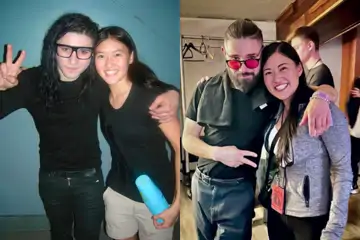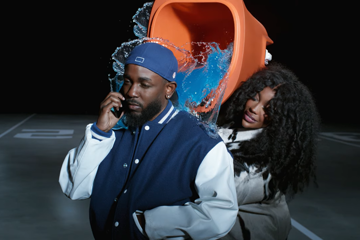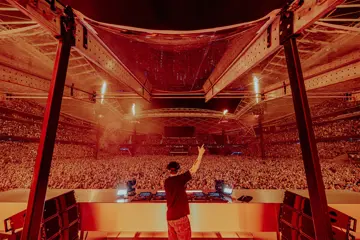Valeria Bruni-Tedeschi's phone won't stop buzzing. It's midway through an interview, in the Hôtel du Louvre, where the 49-year-old French-Italian starlet is meant to be discussing her third directorial effort, A Castle In Italy, but she's clearly distracted. It's her mother, Marisa Borini, calling, and a wave of panic is rippling through Paris: a gunman has just opened fire outside a bank. It's November 2013. It's the same month Bruni-Tedeschi is on the cover of French Elle alongside sister Carla Bruni-Sarkozy, the model-turned-singer-turned-First-Lady. Their candid interview details lives played out in public, but it's got nothing on A Castle In Italy. In it, Bruni Tedeschi stars as a neurotic actress, and Borini plays her mother. Her long-term ex-partner, Louis Garrel, plays her on-screen lover, a moody fop whose father (like Garrel's) happens to be a filmmaker. There's no sister character married to the French President, but Filippo Timi plays a terminally ill brother, in a storyline clearly drawn from its maker's experiences watching Virginio Bruni-Tedeschi die of complications from AIDS in 2006. It's a film about family, but also a film about a family of privilege – the last of a dying breed of 'old money' Europeans.
“Whenever I try to make a film, I am looking for the smell of truth, the perfume of truth,” says Bruni-Tedeschi, poetically. “[A Castle In Italy] started out as a film about a family needing to sell a castle, but then there came this other story, about a brother who is sick. We had these two stories, [and] for a long time, the film was almost like two different films: the story of an Italian family on one side and the world of a French family on the other.”
In conversation, Bruni-Tedeschi alternates between French and English, often several times in the one sentence as if picking and choosing which phrases she prefer. There's a translator on hand, but she's almost untranslatable, and certainly not easy to transcribe. A Castle In Italy switches between French and Italian with the same kind of whimsy, symbolising its writer/director/star's cultural duality. Bruni-Tedeschi comically juxtaposes the rationality of French intellectuals versus the old world religion of Italians (the main character existing “in a frontier that I find fascinating”, Bruni-Tedeschi admits, “the border between faith and superstition”.)
This cultural clash causes conflict in the on-screen relationship between Bruni-Tedeschi and Garrel, and it's impossible to watch the film and not imagine that so much of it is drawn from their real life relationship. “People say it's difficult to make a film when it's personal, but I don't know, [because] I don't have a comparison. Because I always [make] my movies this way. Everything I do is always personal: even if I'm just doing a play in the theatre, or a role as an actress, there's always the same sense of intimacy. But when I'm making my own movies – when I'm writing the script, directing, acting – then it can only be more personal.”
The Jane Barnes Band Reveal 2026 Australian Tour Dates















